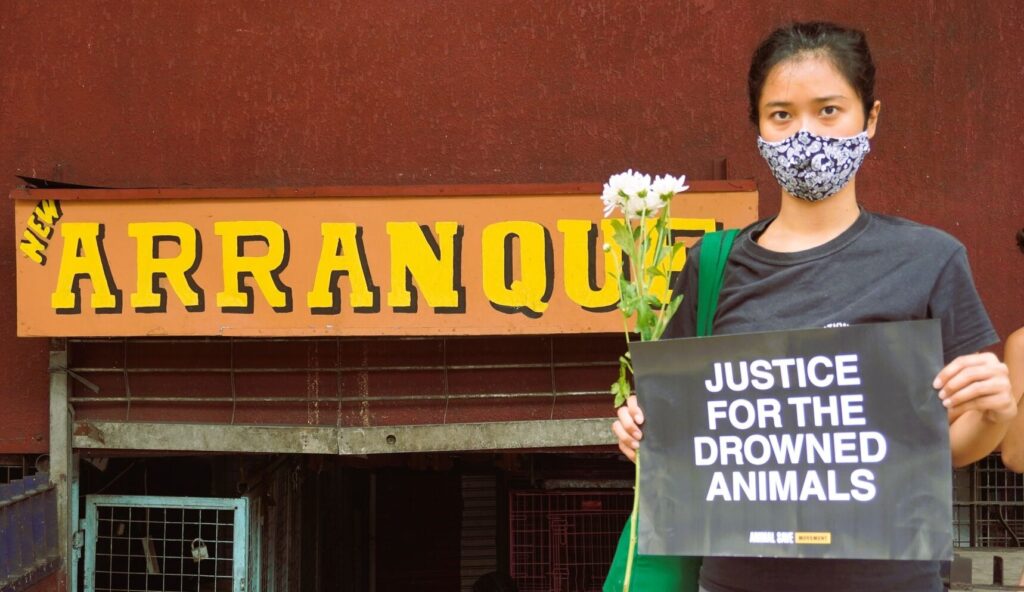In an emotional protest gathering at the Arranque Market in Manila last Aug. 6, animal rights activists expressed their sorrow and outrage over the tragic loss of countless animals in local pet shops—victims of floods—underscoring once more the urgent need for a compassionate shift in society’s perspective toward animals.
On the night of July 21, relentless rains from the Habagat (monsoon), along with Typhoons Dante and Emong, caused floodwaters to rise waist-deep, inundating the pet shops in the market. Compounded by a malfunctioning water pump, the flooding persisted until July 24, drowning the animals who were kept in cages in the pet shops. Dogs, rats, fish, ducks, hamsters, chickens, rabbits, cats, birds, and hedgehogs were among those who died.
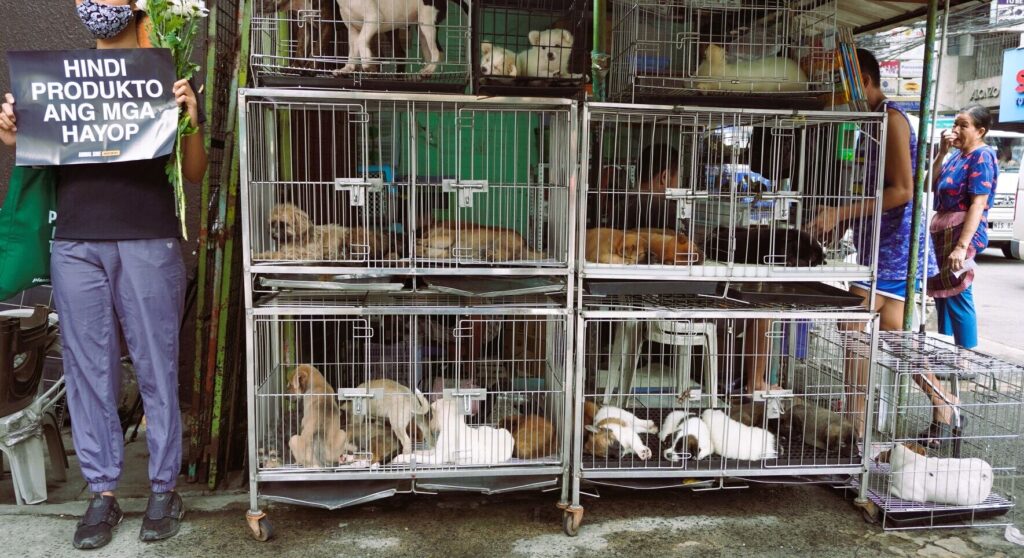
This was not an unforeseen accident, but a predictable outcome when the breeding and selling of animals are normalized, an inevitable consequence of treating living, feeling individuals as inventory. The commodification of animals—displayed, confined, and sold like objects—strips them of their right to live free from harm and exploitation. This incident is not isolated, but part of a larger pattern rooted in speciesism: The belief that humans can dominate animals’ bodies, freedom, and lives for their use.
“The recent tragedy at the Arranque Market highlights the violence that is normalized in animal use. When nonhuman animals are used like property— mere objects that people can profit from— their lives are treated as disposable. Every cat, dog, fish, rabbit, cow, pig, chicken, pigeon, etc, is a sentient being whose life is precious. We can end this cycle of violence by going vegan and by pushing for policy changes that incentivize plant-based living over animal use,” stated animal rights activist Nancy Siy during the protest gathering.
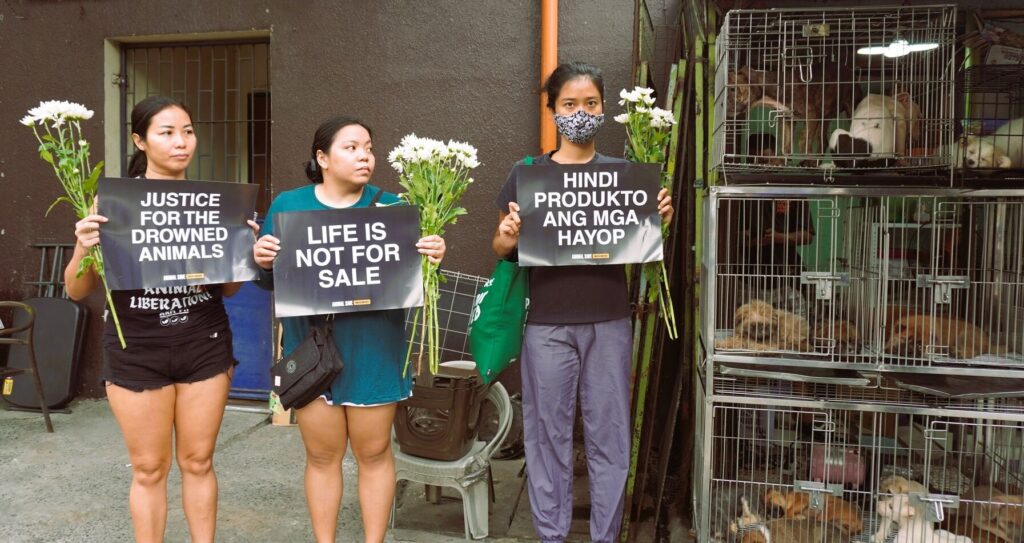
The activists’ call to action: “Adopt, don’t shop. Countless loving animals are waiting for a forever home in shelters and sanctuaries. By choosing adoption, we not only save lives but also help dismantle industries that profit from exploitation.”
Advocate Edison Yu of Metro Manila Animal Save emphasized, “Pet shops often exist to profit from the vulnerability of animals. Every purchase contributes to the ongoing suffering and exploitation experienced by millions. This is a plea for the public to reject all forms of animal use, whether for food, entertainment, clothing, sports, or cosmetics.”
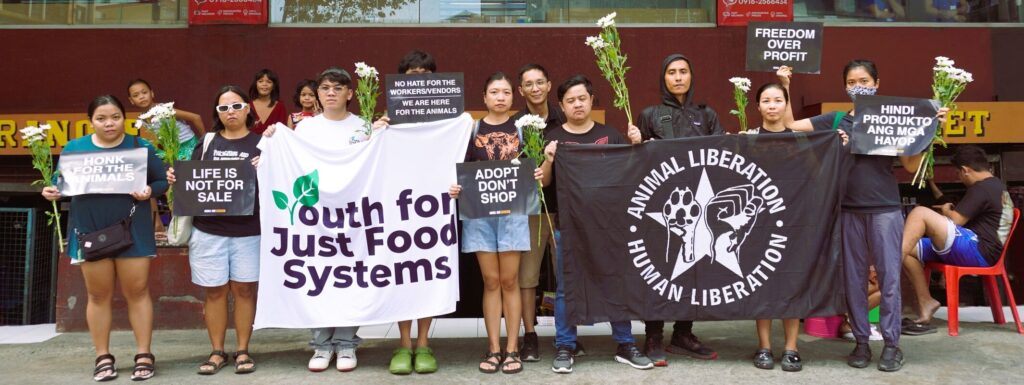
He added, “We earnestly implore local authorities to provide pet shop workers with alternative sources of income that do not involve the use and exploitation of animals, and instead promote livelihoods that are safe, sustainable, and rooted in compassion.”
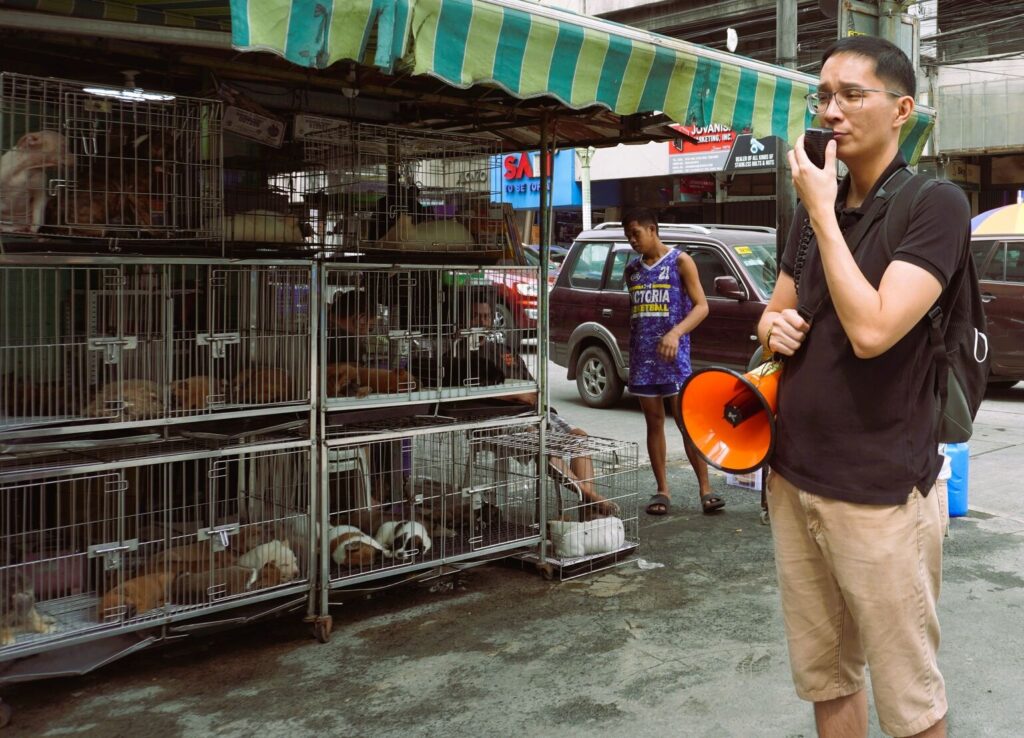
The Aug. 6 protest gathering emphasized the animal rights advocates’ mission that extends beyond the rights of companion animals. “We take a consistent stance advocating for animal liberation rather than commercial exploitation, recognizing that human rights issues and animal rights issues are intertwined,” the group stressed.
